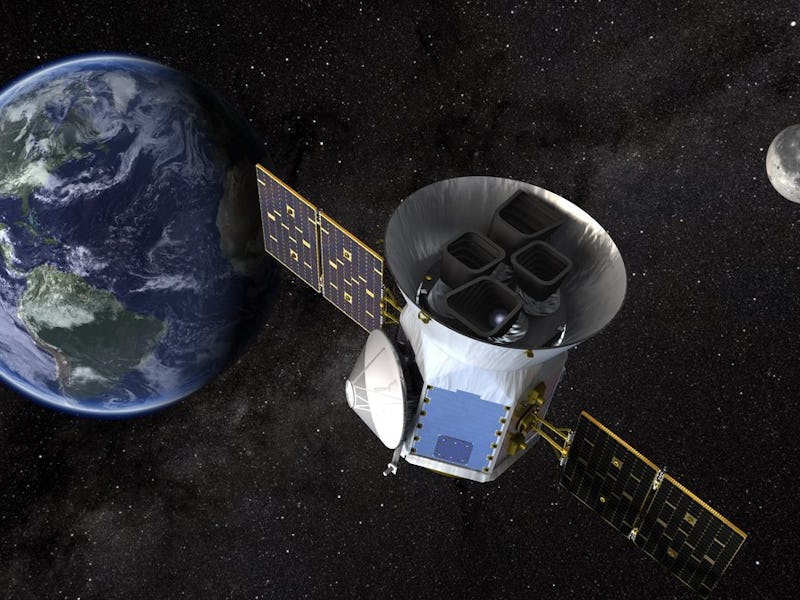NASA's Reddit TESS AMA Addressed Redditors' Burning Planet-Hunter Questions
But will it find aliens?

To celebrate the launch of NASA’s Transiting Exoplanet Survey Satellite (TESS) — despite its delayed launch — NASA held a Reddit AMA to answer space enthusiasts’ burning extraterrestrial questions.
The AMA took place this afternoon in anticipation of the SpaceX Falcon’s liftoff from Florida’s Cape Canaveral Air Force Station, which was originally slated for Monday at 6:32 p.m. Eastern but has since been moved to Wednesday, April 18. As expected, the AMA included questions from Redditors on everything TESS, like what life at Goddard is like and details on TESS’s travel schedule.
NASA has lofty expectations for TESS.
User AstroManishKr asked, “What type of research will be done from this mission and how would we benefit from it?” The NASA Goddard Space Flight Center replied comprehensively. “One (of many!) expected result is: Humanity will learn how common terrestrial planets are in the habitable zone,” Diana Dragomir, an astronomer at MIT, said. “By terrestrial I mean similar mass and size as the Earth. With this, we will be one big step closer to understanding how likely it is that life has evolved elsewhere in the Galaxy.”
The question was the closest the AMA came to addressing possible extraterrestrial life detection by TESS. “Great question! Well we have found Earth-sized planets that orbit their star every 8 hours!” replied Elisa V. Quintana, an astrophysicist at NASA’s Goddard Space Flight Center. “We have found rocky planets that are as big as 2x the Earth, so would have incredible gravity. We know of dozens of planets that orbit 2 stars, so those planets wouldn’t have a constant flux from the stars like we do from the Sun, so could life adapt to that environment?” The answer went on to reference the previously launched Kepler mission, stating TESS will “likely” raise similar questions regarding our sky.
The Falcon launch experienced a hiccup on Monday afternoon, just hours ahead of its scheduled evening launch. However, SpaceX assured the public the liftoff is still happening after some more guidance, navigation, and control analysis in the next two days.
The Falcon spacecraft is set to be NASA’s next great exoplanet hunter, continuing what the Kepler mission began. Over the course of two years, TESS will investigate an area of sky that contains about 20 million stars, which could aid astronomers and astrobiologists in finding habitable exoplanets.